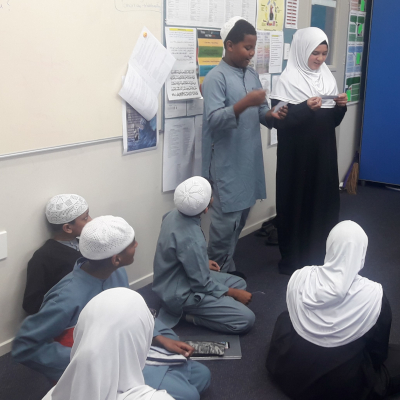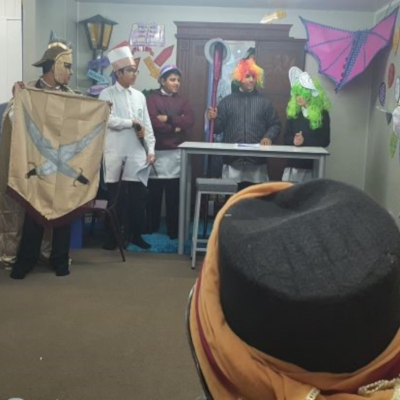English

English is the study, use, and enjoyment of the English language and its literature, communicated orally, visually, and in writing, for a range of purposes and audiences and in a variety of text forms. Learning English encompasses learning the language, learning through the language, and learning about the language.
English is structured around two interconnected strands, each encompassing the oral, written, and visual forms of the language. The strands differentiate between the modes in which students are primarily:
- Making meaning of ideas or information they receive (listening, reading, and viewing)
- Creating meaning for themselves or others (speaking, writing, and presenting)
The achievement objectives within each strand suggest progressions through which most students move as they become more effective oral, written, and visual communicators. Using a set of underpinning processes and strategies, students develop knowledge, skills, and understandings related to:
- Text purposes and audiences
- Ideas within language contexts
- Language features that enhance texts
- The structure and organisation of texts
Students need to practice making meaning and creating meaning at each level of the curriculum. This need is reflected in the way that the achievement objectives are structured. As they progress, students use their skills to engage with tasks and texts that are increasingly sophisticated and challenging, and they do this in increasing depth.
https://nzcurriculum.tki.org.nz/The-New-Zealand-Curriculum/English
English student’s Activities
Primary
All the strands of English curriculum are integrated with other learning areas in order to develop in depth understanding of concepts and metacognition. Students are encouraged to do online reading and google classroom is also used to assign and assess students’ work. More details are in CIP- Curriculum Implementation Plan.
Year 1 and 2
Students will acquire and begin to use sources of information, processes, and strategies to identify, form, and express ideas.
Year 3 and 4
Students will select and use sources of information, processes, and strategies with some confidence to identify, form, and express ideas.
Year 5 and 6
Students will integrate sources of information, processes, and strategies with developing confidence to identify, form, and express ideas.
Intermediate
Years 7 and 8
Course Outline:
In Year 7 and 8 students will integrate sources of information, processes, and strategies confidently to identify, form, and express ideas. Students will show an increasing understanding of how texts are shaped for different purposes and audiences.
https://nzcurriculum.tki.org.nz/The-New-Zealand-Curriculum
Years 9 and 10
Course outline:
The junior programme will be taught over a two year period. Students will integrate sources of information, processes, and strategies purposefully and confidently to identify, form, and express increasingly sophisticated ideas. The students will show an understanding of how texts are shaped for different purposes and audiences.
Senior
NCEA level 1
Prerequisite: Y10 English
Course outline:
In Level 1 English, learners will show a developed understanding in the meaning of the text and use the English language appropriately to create meaning with more connected ideas. Students may choose to do standards up to 18 credits. The programme allows students to get course endorsement.
NCEA level 2
Pre-Requisite: 12 credits achieved at Level 1 English.
Couse Outline:
In Level 2 English, learners will show a discriminating understanding in the meaning of the text and use the English language appropriately to create meaning with more sustained ideas. Students may choose to do standards up to 18 credits. The programme allows students to get course endorsement.
NCEA level 3
Pre-Requisite: 12 credits achieved at level two English.
Course outline:
In Level 3 English, learners will show a discriminating and insightful understanding in the meaning of the text and use the English language appropriately to create meaning with more sustained and insightful ideas. Students may choose to do standards up to 18 credits. The programme allows students to get course endorsement.




